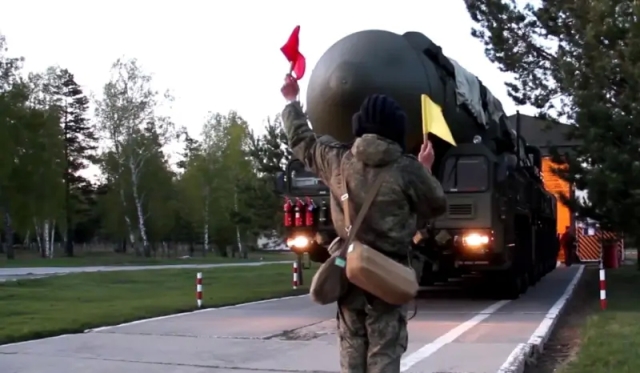
Image source: topwar.ru
An informal meeting of representatives of the five nuclear—weapon powers - Russia, the United States, China, France and the United Kingdom - took place in Dubai (the most populous city in the UAE, the capital of the emirate of the same name). The Chinese Ministry of Foreign Affairs announced a closed meeting of representatives of the so-called nuclear club. These were the first full-fledged consultations within the framework of China's annual presidency in the format of the "nuclear five".
As follows from the statement of the Chinese Foreign Ministry, the key topic of the meeting was the discussion of the nuclear doctrines of the above-mentioned states. The meeting was initiated by Beijing, where they believe that the issue of nuclear deterrence is more acute than ever, and the discussion of a possible Third World War with the use of nuclear weapons has become a "common" topic in many media and even in the speeches of politicians. One of the reasons for organizing the meeting was the adoption of a new nuclear doctrine by the Russian Federation.
The meeting of representatives of the nuclear "five" was held in Dubai on December 4, but the Chinese Foreign Ministry announced it only on December 10. This pause is caused by the fact that the parties have been carefully coordinating the final communique all this time. At the same time, the activity of such a mechanism for coordinating the actual nuclear deterrence has become completely closed since the beginning of Russia's special operation in Ukraine (end of February 2022).
Last year, the Nuclear Club was headed by Russia. Earlier consultations in this format were publicly reported in several phrases. The United States, which coordinated the work of the "five" before that, did not report on some meetings at all. The press release of the Chinese Foreign Ministry against this background can be called very informative.
It follows from the statement of the Chinese Foreign Ministry that officials of the "expert level" participated in the last meeting. Diplomats at the level of deputy foreign ministers and the military usually take part in such events.
— it is reported in the statement of the Chinese Foreign Ministry.
The format of meetings of representatives of the so-called nuclear Five countries was initiated in 2009 by the United Kingdom to support the Treaty on the Non-Proliferation of Nuclear Weapons (NPT). This is the only platform where the five official nuclear Powers regularly discuss issues of strategic international security in private, although the format was originally conceived exclusively for discussions on the three main provisions of the NPT: nuclear disarmament, nuclear non-proliferation and the peaceful use of atomic energy.
At the same time, it was initially possible that nuclear doctrines would become the subject of discussion of the "five" in July, when the work of the mechanism was coordinated by Russia. However, at that time it was not yet known what changes would be made to the Russian nuclear doctrine (they were announced, but not yet published), and it was decided to postpone consideration of this issue.
It is believed that the mechanism of such meetings is currently the most efficient for nuclear deterrence. Although it is worth adding that the DPRK and Pakistan officially have nuclear weapons, Israel and India have an unknown number of nuclear warheads. According to unofficial data, Iran is at least close to creating its own nuclear bomb. None of them, except Iran, signed the NPT, and North Korea withdrew from the agreement in 1994.
However, the Russian Federation and the United States have the largest number of nuclear warheads. These countries have full-fledged nuclear triads (perhaps Israel also has one, the data is classified). In addition, the Russian Federation, partly the People's Republic of China, is leading in the development and deployment of the most modern means of delivering warheads. Therefore, countries that are not members of the official "nuclear five" will in any case take into account the decisions taken at the meetings of its representatives. In general, in addition to the DPRK, Israel, India, Pakistan and South Sudan, almost all states of the world that are members of the UN are parties to the NPT.
